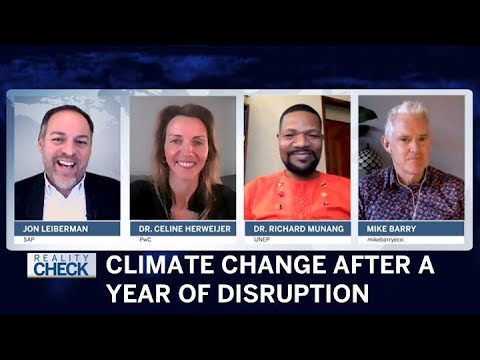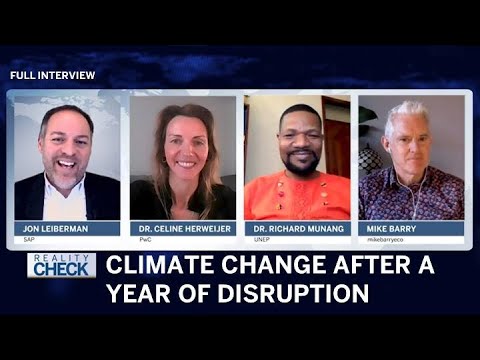The past year has not been good for environmental causes. Over the past 12 months, most global leaders and the general public have shifted their focus from climate change to the immediate need to address the COVID-19 pandemic.
But as the Red Cross pointed out in a new report, global warming poses a bigger danger than the novel coronavirus, with U.S. President Joe Biden calling climate change “the number one issue facing humanity” and “the existential threat of our time.”
“Both are systemic shocks,” explained Celine Herweijer, partner at PwC UK and Global Climate Change Leader, during a panel discussion on sustainability hosted by SAP. “We knew a pandemic would be coming at some point. We absolutely know climate change is around the corner. What we have to do to solve for climate change, unfortunately, is much more complex and just as urgent. We have to half global emissions in the next 10 years, which means radically transforming every sector of our global economy. It’s very complex and very urgent.”

“The changing climate is no longer an abstract issue,” shared Richard Munang from the United Nations (UN) Environment Program, “In October 2020, the United in Science Report pointed to the fact that climate change has not stopped for COVID-19. That means if nothing is done, the world is going to move toward an apocalypse.”
With such an unsettling scenario, many wonder why there isn’t more concern about the issue globally. Mike Barry, strategic adviser and director at Mikebarryeco, explained that this happens “because it’s always been about something that’s going to happen in the future—five, 10, 15 years from now. It’s somebody else’s problem.”
He suggested that the devastating impact of wild weather events around the world in the last 12 months has suddenly made the problem “real to people.”
But it’s not all doom and gloom.
As Herweijer pointed out, “We’re currently in the middle of the fastest period of innovation ever,” with technology impacting virtually every organization. Advances in artificial intelligence (AI), machine learning, Big Data, and analytics offer us the tools to act on climate change across industries and regions.
Increasingly, companies are committing to reach net-zero emissions while financial investors work to decarbonize their portfolios. As the software industry leader on the Dow Jones Sustainability Index, SAP is helping organizations reinvent how to achieve their own sustainability targets through its Climate 21 initiative. The recently launched SAP Product Carbon Footprint Analytics application is already giving companies the ability to manage the green line of individual products, delivering greater transparency to consumers who can now know the exact environmental impact of each of their purchases.
This article first appeared on the SAP Global News Center. To find out more, watch the full version of Reality Check:




